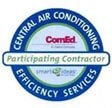No home appliance lasts forever, and with any one of them you will eventually face the question of whether you should continue with repairs to keep the device running, or invest in a replacement.
A storage water heater lasts, on average, between 10 to 15 years. (Tankless systems tend to last longer.) The longevity depends on the model, the quality of water from the municipal source, the regularity of maintenance and repairs, and other factors. The manufacturer of the water heater in your home should have listed an estimated lifespan for the system on the tank. But even with this guideline, it often isn’t easy to tell when you should repair or replace. We’ll help focus your decision when it comes to the “repair vs. replace” debate. However, you should still seek a professional opinion before you make the choice. For a water heater in Bolingbrook, IL, call the experts at DuAll Heating & Cooling for advice, repairs, and installation.
Repair?
If your water heater is still under the estimated lifespan by a few years, and especially if it is still under the manufacturer’s warranty or an extended warranty from the installer, you should look into repairs first when the system shows signs of malfunctions. If you have kept up with annual routine maintenance, the system should still be in good enough health that a targeted repair from a professional will restore the system and keep it moving toward its estimated lifespan. (And don’t delay with any repairs; prompt action is the key to a long lifespan.)
Replace?
If a water heater is 15 years or older, you should already be thinking of replacing it even before a malfunction occurs… but a malfunction should serve as the final warning flag. If a water heater is close to the end of its estimated lifespan, pay special attention to problems like less available hot water or rusty-colored water coming from the taps. Rust inside the tank is usually a strong sign the system is close to a complete and final failure.
If you do choose to replace the water heater, you may want to consider going with a tankless model. These systems have greater longevity and energy efficiency, and they do not run out of hot water. Ask your installer about this option to see if it fits your home.
DuAll Heating & Cooling is ready with repairs for your water heater in Bolingbrook, IL, or with advice for new installation—whichever ends up the case we’ll help you make the right choice.












